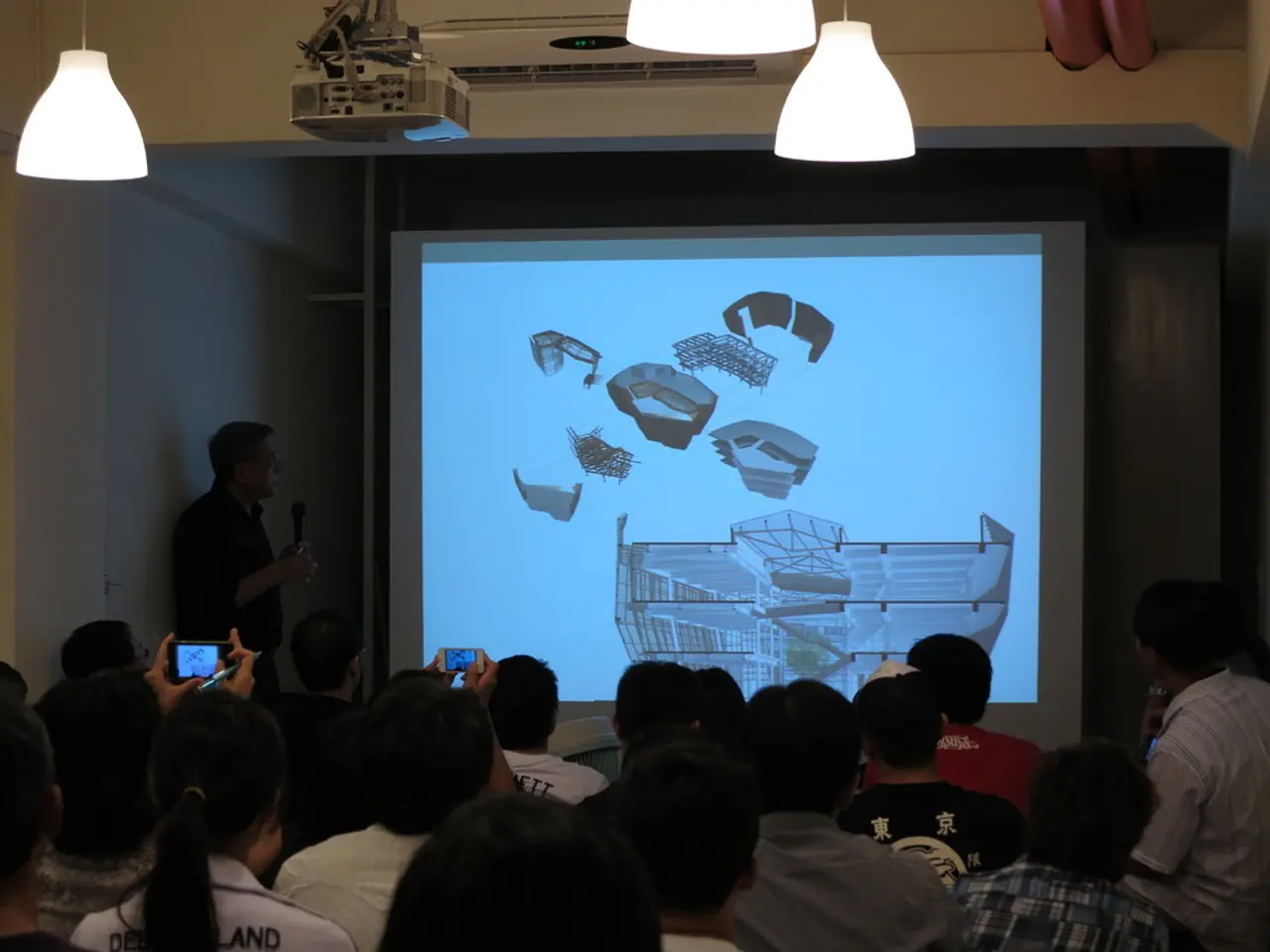Tech Giant Google Selects Xreal for "Optical Transparency" Smarter Spectacles, Potentially Overpowering Meta's Orion AR Eyewear
Google has unveiled Project Aura, a new generation of augmented reality (AR) smart glasses, developed in collaboration with XReal. The glasses were introduced at Google I/O 2025 and are set to revolutionise the AR industry with their innovative features and design.
Powered by Android XR and an onboard Snapdragon XR processor, Project Aura offers a seamless user experience. The glasses boast a 70-degree field of view, which allows for a cinematic experience, similar to AR frames, where app windows can float and remain in place while moving. The flat prism display design supports a simulated large 171-inch screen, offering a smooth 120Hz refresh rate, accurate colour, and reduced flicker/edge blur.
Project Aura's design emphasises comfort and style, with lightweight specs that do not attract undue attention, making them suitable for extended wear in everyday settings. The glasses integrate tightly with Google apps, AI tools, and the broader Android ecosystem, thanks to running a spatial version of Android directly on-device.
An advanced X1 chip enables on-device 3DoF tracking (three degrees of freedom), eliminating the need for external software for display control and tracking. The glasses also feature a tiny red button on the right ear, likely for user interaction.
For now, it's likely that Project Aura will need to be plugged into a phone for use. However, it's expected to connect to phones, tablets, and laptops, much like Xreal's current smart glasses.
In comparison, Meta's Orion concept AR glasses also aim for a wide 70-degree field of view and an immersive AR experience. Meta's approach focuses on head-locked full color displays with high peripheral visibility and potentially more advanced hand and 6DoF tracking systems (six degrees of freedom) when paired with external peripherals.
Google's Project Aura stands out for its native Android XR OS, the integration of Google services, an advanced on-device processor, and a 70-degree field of view combined with comfort and sleek design. Meta's Orion concept, on the other hand, may focus more on comprehensive spatial tracking and VR-level internals.
Additional details about Project Aura will be shared next month at Augmented World Expo. As the AR industry continues to evolve, it's exciting to see Google and Meta pushing the boundaries with their innovative smart glasses. Who knows, in the future, reading Gizmodo articles through smart glasses could be a possibility!
[1] Google unveils Project Aura: Next-gen AR smart glasses at Google I/O 2025. (2025, May 12). Retrieved from https://www.androidcentral.com/google-unveils-project-aura-next-gen-ar-smart-glasses-google-io-2025
[2] Meta's Orion concept AR glasses: A closer look. (2025, April 15). Retrieved from https://www.extremetech.com/computing/316217-metas-orion-concept-ar-glasses-a-closer-look
[3] Viture's Luma Ultra models: AR glasses with built-in 6DoF tracking and hand-tracking cameras. (2024, December 10). Retrieved from https://www.roadtovr.com/vitures-luma-ultra-models-ar-glasses-6dof-hand-tracking/
[4] Meta plans to downgrade Orion capabilities to lower price significantly. (2025, June 1). Retrieved from https://www.theverge.com/2025/6/1/23162207/meta-orion-ar-glasses-cost-cutting-silicon-carbide-waveguide-lenses
- Project Aura, Google's new augmented reality smart glasses, boasts a native Android XR OS, integrates Google services, sports an advanced on-device processor, and offers a 70-degree field of view, all promising a seamless tech experience for the future.
- As the AR industry encounters rapid advancements, Gizmodo might soon be read through smart glasses like Project Aura, thanks to their immersive technology and innovative design.
- In the tech competition, Meta's Orion concept AR glasses pursue a wider 70-degree field of view, but its focus seems to be on comprehensive spatial tracking and VR-level internals, setting a different pace in the race for the AR future.




